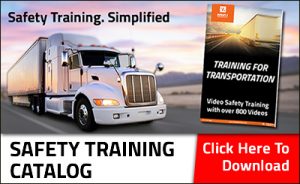What Triggers a DOT Compliance Audit?
When it comes to a DOT compliance audit, it’s not a matter of “if”, it’s a matter of “when”. An audit is triggered after an accident or poor review during a roadside stop. These audits can also be triggered by bad CSA scores for a company.
On top of these issues that can trigger an audit, the DOT does do random audits at times, so you will find yourself going through a compliance audit if you work in the trucking industry. When the auditor comes, you need to be ready with proper documentation.
Remember, if it’s not documented, dated, and readily available, it didn’t happen.
How does the DOT oversee trucking firms?
The Department of Transportation (DOT) is a federal regulatory agency that oversees all transportation in the United States. The Federal Motor Carrier Safety Administration (FMCSA) is a division of the DOT tasked with regulating the commercial vehicle industry.
The FMCSA develops and enforces regulations meant to keep the roadways and truck drivers safe. All trucking companies and drivers must follow all FMCSA regulations or face penalties such as fees or having their trucks taken off the road.
What Do You Need During a DOT Audit?
When an auditor comes, it’s important to have all the necessary documentation ready, including driver logs, medical records, and safety training records. This documentation could mean the difference between a simple audit and getting your trucks parked.
One of the most important things an auditor looks for is your company’s safety record. They want to see how you’re implementing driver safety training programs, and more importantly how well they are working.
They will also look at your company policies. They want to make sure all company personnel have read and are following these policies. It’s important to make sure all your documentation can prove consistent efforts towards maintaining a culture of safety.

The Consequences of a Bad Audit
If your DOT compliance audit doesn’t show sufficient training and safety documentation, you could end up with a Conditional status, meaning the auditor provides an action plan and a deadline for you to implement it.
Conditional status can put a target on your company. Your trucks will get stopped more often and will be subjected to more frequent roadside inspections. You’ll also find it difficult to find clients and drivers willing to work with your company if you have a conditional status.
Without the right tools in place, you could end up costing your company time and money.
Protecting Your Company During an Audit
The best way to make sure you have all your documentation ready for an audit is to implement an online DOT safety training program like Infinti-I Workforce Solutions. The Infinit-I system is easy for drivers to use and makes maintaining and accessing records easy for you.
The cloud-based solution allows drivers to complete ongoing short, interactive courses, and maintains all records of participation and testing scores with date and timestamps. This means when DOT comes calling for an audit, you have all the documentation you need to keep your trucks on the road and in good standing.
Infint-I can help you solve your biggest safety training issues, all while saving your company money. For more information about how, download our risk management whitepaper.
Prepare Against Your Next DOT Audit
Your company could be subject to a DOT compliance audit at any time, but especially after incidents on the road. A culture of safety goes a long way towards passing these audits, and that’s where Infinit-I Workforce Solutions is on your side.
Before you take your chances with your next audit, check out how Infinit-I can help you create a program to meet your safety and compliance needs. To see it for yourself, request a demo today.




